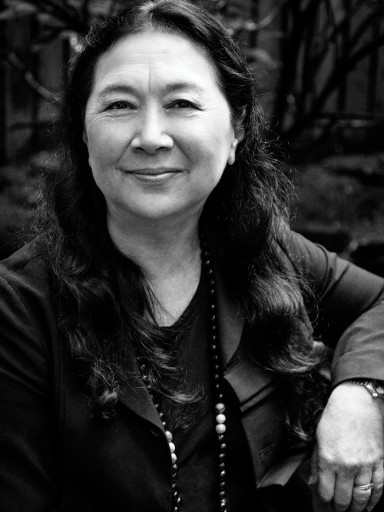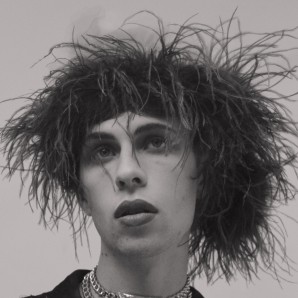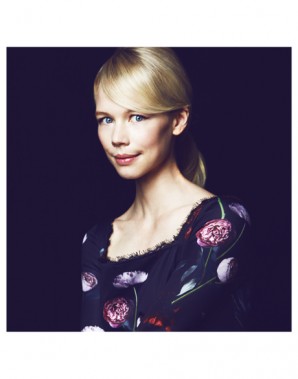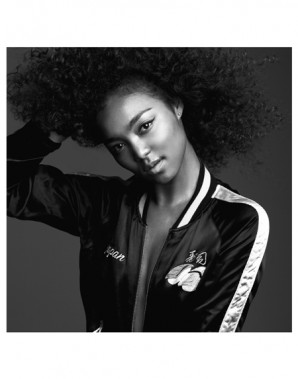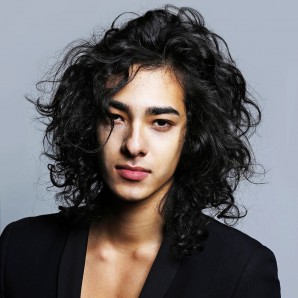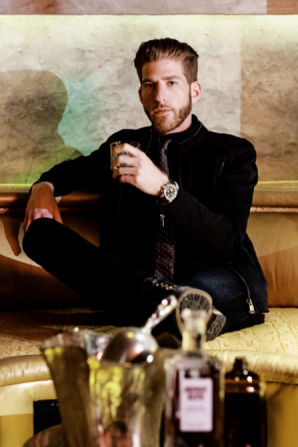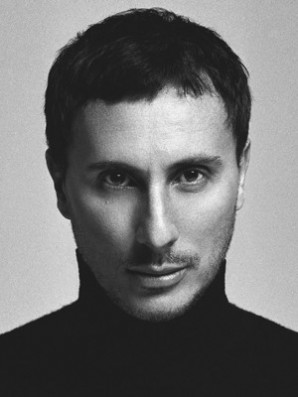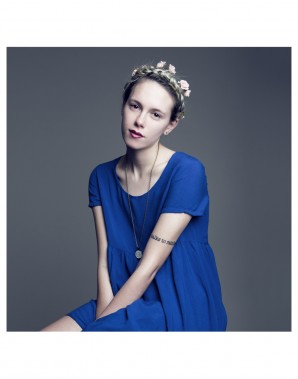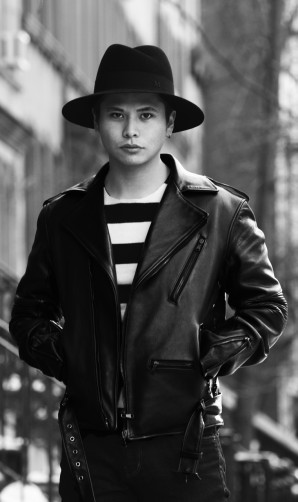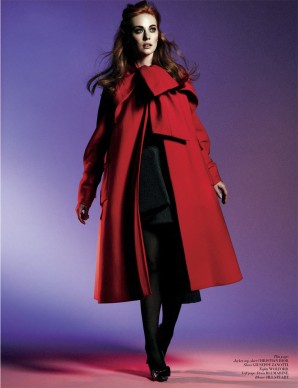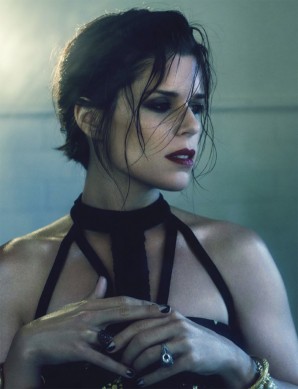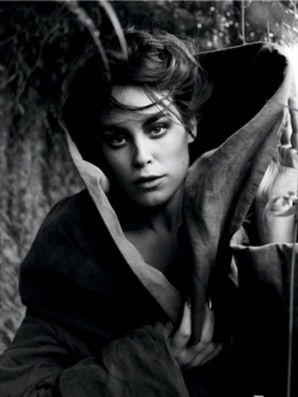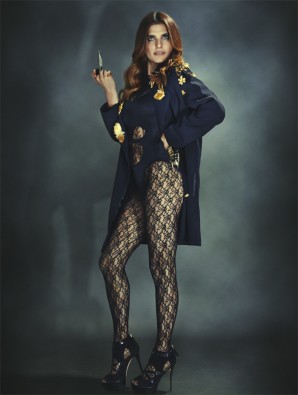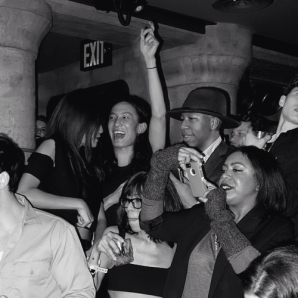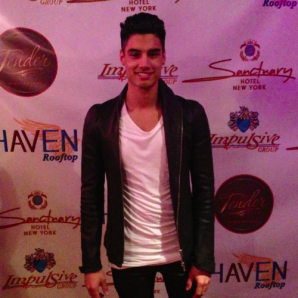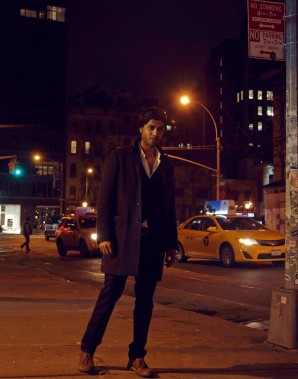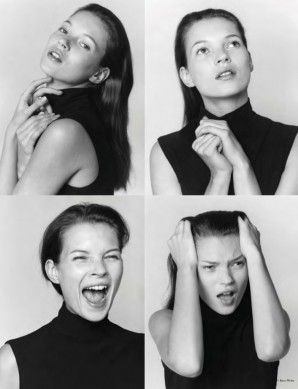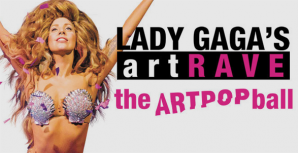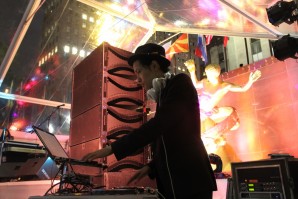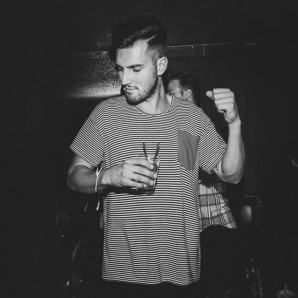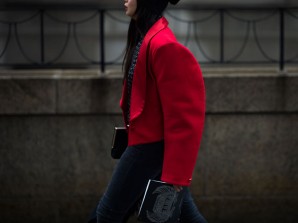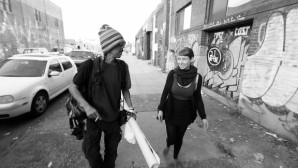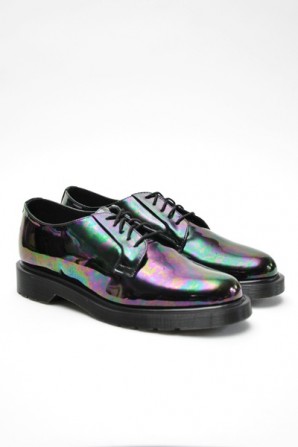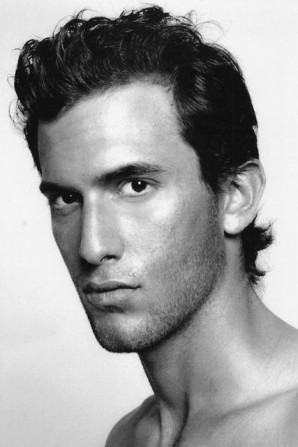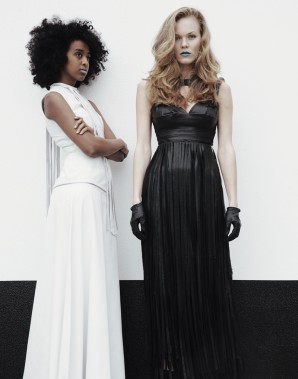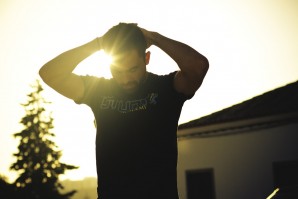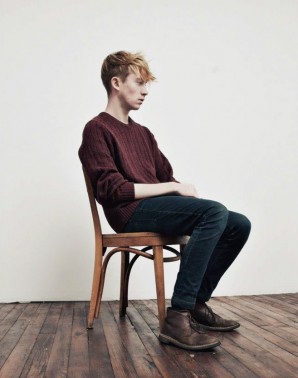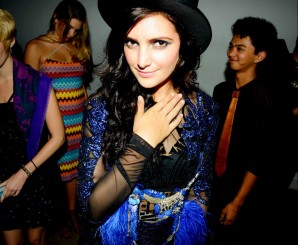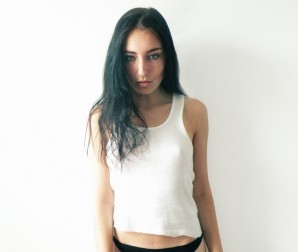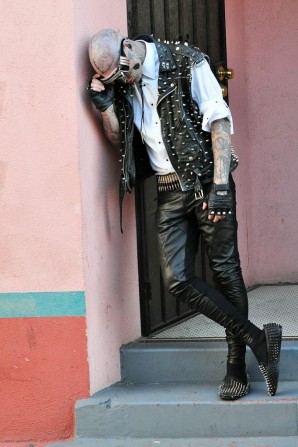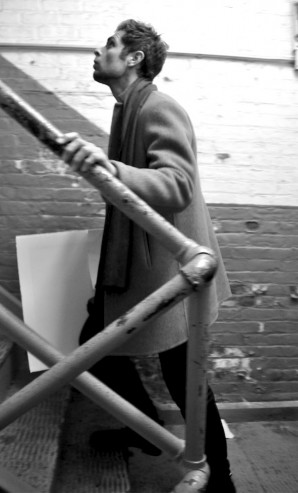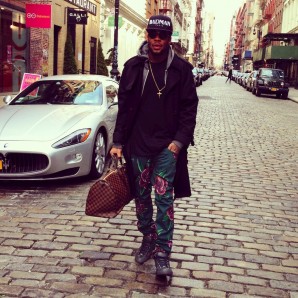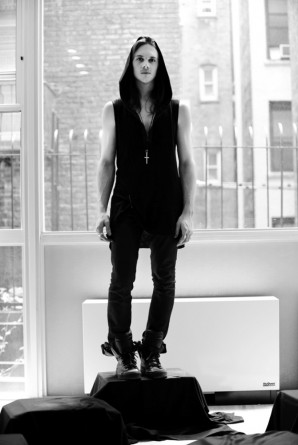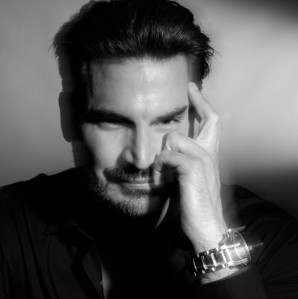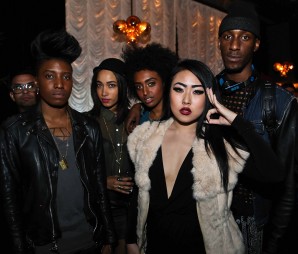TWELV takes a step back and visits the masterminds behind the camera.
NIAN FISH INTERVIEW
Nian Fish, creative director of KCD, has been, for decades, a pivotal figure in the fashion world, assembling and producing fashion shows that have become cultural benchmarks unto themselves, such as Calvin Klein’s 1994 show which saw Mark Wahlberg’s star rise—among other things—as he strutted underwear-clad down the runway.
Her imprint on the image of the industry has taken on another shape by way of her work as chairperson of the Council of Fashion Designers’ Health Initiative, which seeks to promote awareness of eating disorders and spur dialogue about healthy body image among runway models. Her work with the CFDA is giving way to a new online project due to go live in April 2013, featuring a series of short films. But, as this conversation with TWELV shows, in Fish’s life the common threads between fashion and cinema stream beyond video.
Could you tell me a bit about your childhood and perhaps any moment that was a hint of your future career pursuits?
The first thing is that I consider fashion a theatre. We traveled all around the world. My father was in the Army and at one point—which I think is the most crucial point in my life—he left my mother and he didn’t come home for months. My mother had to earn a living and eventually we had to come to New York to work. What I loved so much about New York were all of the different races. There were the Jews, the Puerto Ricans, the Chinese, the Koreans, the Hawaiians; there were the Irish, the Italians. At 10, I started gathering these people who had different talents like the Chinese violinist and the Eurasian hula dancer, who passed for Hawaiian. I would style them, charge 25 cents for admission, and we’d perform in the lobby of my little tenement. I didn’t realize the fashion part of it until just now—but a big part of it was making sure they looked good; refining their characters to make them look more “Hawaiian” or more “Puerto Rican”.
Amazing. So when was this, the 50s?
This was 1960.
So 25 cents was quite a bit of money.
I know! The funny thing is that we were middle class until my parents split up. I started going to this upper-middle-class, Jewish, very liberal camp. My friends were very well educated and I wanted to keep up with them. I felt in order to be loved by them, I had to have a good wardrobe. My aunt’s clothes, which were hand- me-downs, were no longer working for me. I wasn’t even embarrassed about it until I met these friends. What the camp started for me was that I began to lie about where I lived and I started to steal clothes so that I could keep up. It’s funny about acceptance and what you’d do to be accepted. Fashion as a business is all about being loved. You become your own marketing vehicle by what you wear. You go to a young art opening and everyone’s got the flannel shirt or the vintage this. They’re dressed down but it’s all about fashion. The people are saying “I’m cool, I’m a New Yorker; I don’t care about designer clothes but I’m going to look independent.” But at the same time, there’s the indie look and in that way, it’s a tribal acceptance.
It’s an indicator of where you see yourself.
It’s an indicator of where you see yourself and what tribe you are. I think acceptance comes a lot from ap- pearance in our universe.
Literally and figuratively. So, you grew up on the Lower East Side. Describe, in one word or phrase, the LES of your childhood.
Melting pot.
Describe the LES of the present.
Cooly gentrified.
If you were to assemble a cast of figures from movies into a fashion show, who would be walking in it? Who would follow whom?
Jimi Hendrix, the way he looked in the Woodstock documentary. Elizabeth Taylor in Butterfield 8. George Harrison, as in the Scorcese documentary, how he looked in the mid-70s. Audrey Hepburn, in Funny Face, in her beatnik look. The blind samurai in Zatoichi Meets Yojimbo. Ziyi Zhang in Memoirs of a Geisha—so elegant. Uma Thurman in Henry and June. Faye Dunaway and Warren Beatty in Bonnie and Clyde. Paul Newman in Cool Hand Luke. And Bob Dylan in the documentary Don’t Look Back.
I hear you’re writing a screenplay about your parents’ life. Could you tell me a bit about that?
Yes, I’m writing it, filming it and will be directing it. The project is going into its seventh year. I’m funding it myself. My mother is Japanese and Chinese. She comes from a very well-to-do family. How they got their money was from businesses in China that invested in the first Chinese restaurants in Japan. As for my father, the term “white trash” wasn’t used in those days but he would be called “hillbilly”. His mother was from Georgia and played the spoons. His father was a railroad and factory worker, so they were truly working class. The documentary, the story, is about them: two different classes, two different races coming together, my mother coming to the country without speaking English and what that meant; my father’s philandering and what that meant. Then there’s the story of my father leaving my mother, him abandoning us, and my mother and I moving to New York.
But what happened after that is that my father started robbing banks. He went missing and I tried to find him, but I didn’t know he was in jail for 10 years. He got caught after the fourth bank heist and became known as the “Kissing Bandit”. It took a while before my father would talk about his criminal history. The other thing is that he and my mother had this black market business right after World War II and during the Korean War. They would sell cigarettes and mayonnaise. Mayonnaise was a hot commodity after the war and I’ll never forget about my maid getting fired for stealing mayonnaise. But my parents had a good little business going and probably built up a pretty good nest egg. Hey, they were Bonnie and Clyde! Another thread.
Written by ANNE SZUSTEK
Photography CAMERON KRONE
Makeup by KEIKO HIRAMOTO @Bryan Bantry Agency.
Production, Casting ALISON NGUYEN.
Edited by NANAMI INABA
related posts
IKEMEN #24: LUKE ABBY
IKEMEN (ē´k´mɛn): Japanese Slang
"REALLY, REALLY, RIDICULOUSLY GOOD LOOKING PEOPLE"
ERIN FETHERSTON EXCLUSIVE INTERVIEW
NAME: Erin Fetherston
ORIGIN: California
OCCUPATION: Fashion Designer
CRYSTAL KAY EXCLUSIVE INTERVIEW
NAME: Crystal Kay
ORIGIN: Yokohama, Japan
OCCUPATION: Performer and musician
IKEMEN #23: ANSONI
IKEMEN (ē´k´mɛn): Japanese Slang
"REALLY, REALLY, RIDICULOUSLY GOOD LOOKING PEOPLE"
IKEMEN #22: ADAM SPOONT
IKEMEN (ē´k´mɛn): Japanese Slang
"REALLY, REALLY, RIDICULOUSLY GOOD LOOKING PEOPLE"
BABËL New York Celebrates 1 Year Anniversary With Two Day Event of Excess and Splendor
BABEL NEW YORK acclaimed the NYC party scene in celebration of their First Year Anniversary. As temperatures begin to heat up in NYC, there is no better locale than the much desired rooftop.
BEHIND THE SCENES #2: LUIGI MURENU
TWELV's Behind the Scenes takes a step back and visits the masterminds behind the camera.
IKEMEN #21: MICHELLE VON MANDEL
IKEMEN (ē´k´mɛn): Japanese Slang
"REALLY, REALLY, RIDICULOUSLY GOOD LOOKING PEOPLE"
IKEMEN #20: GEORGE INAKI
IKEMEN (ē´k´mɛn): Japanese Slang
"REALLY, REALLY, RIDICULOUSLY GOOD LOOKING PEOPLE"
DEBORAH ANN WOLL: ALL THE WORLD'S A STAGE
Deborah Ann Woll’s voice glows when she speaks, as warm and full as her golden red hair.
NEVE CAMPBELL: LOSE YOURSELF TO DANCE
Carrying over two decades of the industry on her back, there aren’t many women with the grace and stoicism of Neve Campbell.
GARETH PUGH: ORGANIZED CHAOS
Gareth Pugh is a study in contrasts; balancing the demands of what is created and what is worn; what is in a designer’s control and what is in the hands of the wearer; what must be planned and...
LAKE BELL: THE GREAT LAKE
Lake Bell has made a name for herself as a charming, beautiful, and witty New Yorker capable of indie and blockbuster success (“It’s Complicated”, “No Strings Attached”, “Children’s Hospital...
FRIDAY'S FW PARTY
With Fashion Week’s second day over, Friday night was primetime for some of the most prominent designer to celebrate their successes over a glass of champagne.
IKEMEN #19: SAMAR SAJJAD
IKEMEN (ē´k´mɛn): Japanese Slang
"REALLY, REALLY, RIDICULOUSLY GOOD LOOKING PEOPLE"
Happy Birthday, Kate the Great!
Happy birthday to everyone’s favorite super model Kate Moss. The Brit enters her 40th year with grace, and she looks better than ever.
Lady Gaga's ArtPop Ball
Lady Gaga is back, and this time, it’s not just to perform.
IKEMEN #18: KEIICHIRO NAKAJIMA
IKEMEN (ē´k´mɛn): Japanese Slang
"REALLY, REALLY, RIDICULOUSLY GOOD LOOKING PEOPLE"
IKEMEN #16: KAROLYN PHO
IKEMEN (ē´k´mɛn): Japanese Slang
"REALLY, REALLY, RIDICULOUSLY GOOD LOOKING PEOPLE"
Futura Bold
Futura came up in the grimy, visceral environment of New York City’s early 1970’s street culture of tagging, bombing and writing graffiti – making their art not in the city, but on top of it.
FROM AUSTRALIA WITH LOVE: WHAT I'VE LEARNED SO FAR
Buyer’s Regret: It’s just like buyer’s remorse only in reverse. And it is a fashion crime that I have and will probably continue to commit time and time again.
IKEMEN #15: EDOARDO IANNUZZI
IKEMEN (ē´k´mɛn): Japanese Slang
"REALLY, REALLY, RIDICULOUSLY GOOD LOOKING PEOPLE"
FROM AUSTRALIA WITH LOVE: Designer Profile of Gabriella Ferrante
I find that Australia’s fashion industry can sometime be accused of playing catch-up with other, bigger and more cosmopolitan locations (i.e. Paris, London etc…) This needn’t be the case.
IKEMEN #14: Joao Veiga de Aguiar
IKEMEN (ē´k´mɛn): Japanese Slang
"REALLY, REALLY, RIDICULOUSLY GOOD LOOKING PEOPLE"
FROM AUSTRALIA WITH LOVE: PRETTY BOYS DON'T BUY THEIR OWN DRINKS
Its no secret if you know me – I like to drink.
IKEMEN #13: NATALIE O'BRIEN
IKEMEN (ē´k´mɛn): Japanese Slang
"REALLY, REALLY, RIDICULOUSLY GOOD LOOKING PEOPLE"
IKEMEN #12: KRISTIN PRIM
IKEMEN (ē´k´mɛn): Japanese Slang
"REALLY, REALLY, RIDICULOUSLY GOOD LOOKING PEOPLE"
ARTIST, MODEL, AND LIVING PIECE OF ART: ZOMBIE BOY
From Zombie Boy to living icon, Rick Genest isn’t just Nicola Formichetti’s muse anymore.
IKEMEN #11: JAY PAAVONPERA
IKEMEN (ē´k´mɛn): Japanese Slang
"REALLY, REALLY, RIDICULOUSLY GOOD LOOKING PEOPLE"
DON'T CALL DELANO BROWN A DESIGNER
TWELV met up with the always-unpredictable artist Delano Brown for lunch in Bryant Park.
IKEMEN #10: LOGAN NEITZEL
IKEMEN (ē´k´mɛn): Japanese Slang
"REALLY, REALLY, RIDICULOUSLY GOOD LOOKING PEOPLE"
Rocco Leo Gaglioti
Who are you?
Rocco Leo Gaglioti Creator/Host of Fashion News Live and Owner/CEO of RLG Productions, Corp.
NICOLA FORMICHETTI TUMBLR MEETUP HIGHLIGHTS
“My job feels more like a hobby than a job, really; it’s always fun,” says Nicola Formichetti for TWELV’s second issue.

